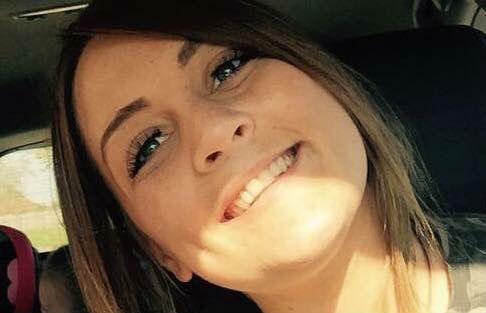Murder conviction for woman who stabbed boyfriend in heart is unsafe, Court of Appeal told
Lawyers say jury did not hear evidence of domestic abuse and a potential personality disorder

A woman who stabbed her boyfriend to death with a steak knife should not have been convicted of murder because evidence of “diminished responsibility” was not put to the jury, a court has heard.
Emma-Jayne Magson, 26, killed James Knight with a single stab wound to the heart after a drunken row in March 2016.
Her lawyers have taken the case to the Court of Appeal, where they argued that fresh psychiatric evidence makes her murder conviction unsafe.
Magson was found guilty of murder and sentenced to life imprisonment at Leicester Crown Court in November 2016.
A jury heard that she and Mr Knight had a “volatile” relationship and had been in an alcohol-fuelled argument in the run-up to the fatal attack.
Magson was described as “cold, brutal and manipulative” and was accused of “sacrificing” Mr Knight by delaying calling emergency services for around 30 minutes.
Sentencing her, Judge Nicholas Dean QC said: “You have demonstrated no real remorse for what you did – on the contrary, you have effectively blamed James Knight for what you did.”
But Magson, previously of Sylvan Street in Leicester, was later given the go-ahead for a full appeal at a Court of Appeal hearing.
Opening the appeal in London on Tuesday, Clare Wade QC said Magson suffered from emotionally unstable personality disorder (EUPD), resulting from a childhood “characterised by exposure to domestic violence”, parental neglect and bullying.
Ms Wade said Magson had stabbed Mr Knight after he had been kicking at her front door “in circumstances where the deceased had been violent to her earlier in the evening”.
She submitted that Magson’s condition “substantially impaired her ability to exercise self-control and that the EUPD provides an explanation for her conduct and was a significant contributory factor causing the applicant to stab the deceased”.
That evidence, Ms Wade argued, meant it is “more likely than not that, at the time of the offence, the appellant was suffering from diminished responsibility”.
Ms Wade said psychiatric experts who had been instructed before Magson’s trial now agreed “that the appellant’s EUPD was the result of her childhood experiences which included exposure to domestic violence”.
She added that the experts also concluded that “the defence of diminished responsibility ... would have been available to her”.

Ms Wade also argued that Magson was unable to participate fully in her trial, saying her “impoverished verbal reasoning skills, EUPD and social communication difficulties” had compromised her ability to properly instruct her lawyers.
William Hughes QC is opposing Magson’s appeal on behalf of the prosecution.
In written submissions, he said the evidence relied upon could have been obtained before or at the time of trial, rather than post-conviction.
Mr Hughes argued that Magson “did effectively participate in her trial”, and was able to “make important decisions affecting the trial process”.
The appeal is being supported by the Justice for Women group, which previously campaigned for Sally Challen, whose murder conviction was overturned by the Court of Appeal earlier this year because of her husband’s abuse.
Speaking outside the Royal Courts of Justice ahead of the appeal, Magson’s mother, Joanne Smith, said the Challen case had brought issues around domestic violence “to the surface”.
She added: “I think people are starting to realise that abuse is not just black eyes and broken bones.”
Mrs Challen’s son, David, who was also outside court ahead of the hearing, said there had been a “definite shift in our understanding as a society of the mental impact victims of abuse suffer”.
He added that it was important to stand with other victims of domestic abuse and “male violence”.
Lord Justice Fulford, Mr Justice William Davis and Mr Justice Johnson reserved their judgment to a later date.
Additional reporting by PA
